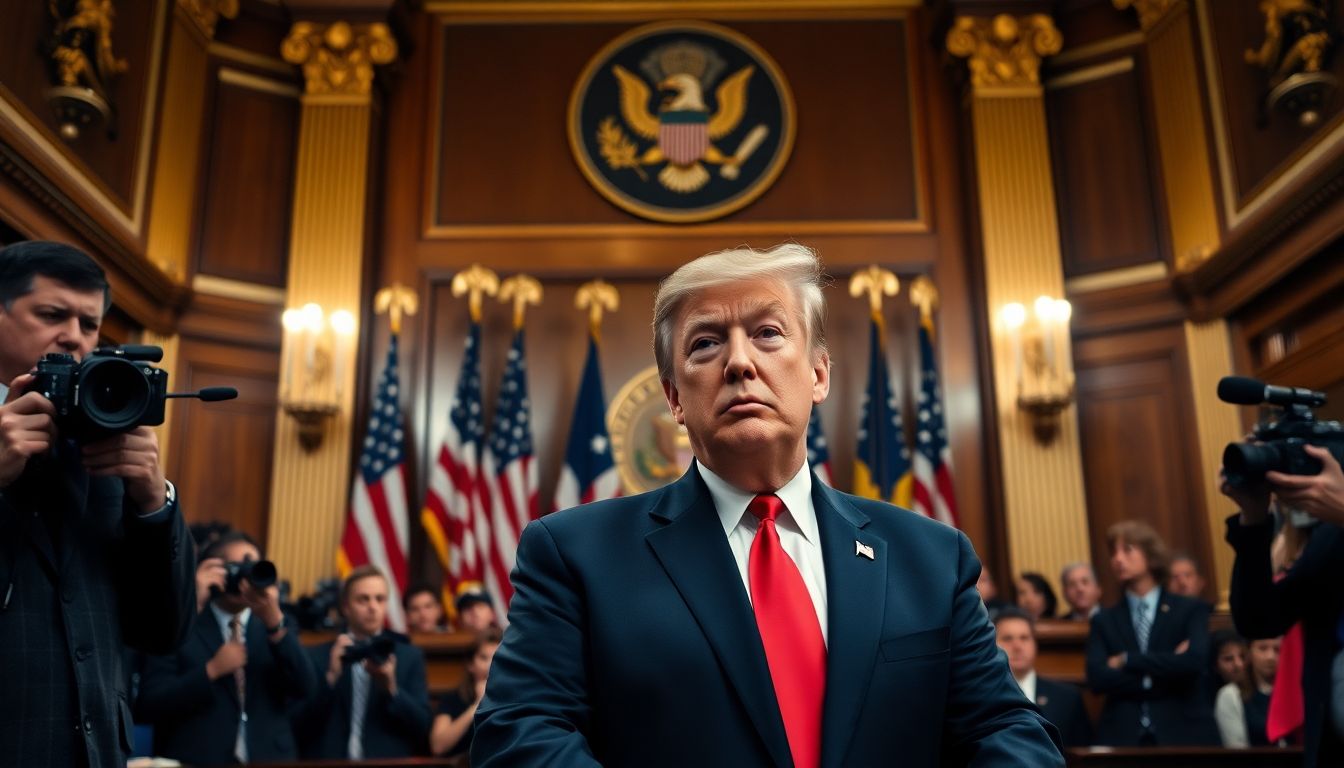
Will Donald Trump Be Impeached? An In-Depth Analysis of the Possibility and Implications
Introduction
Many Americans are wondering whether Donald Trump will face impeachment again. Impeachment has always been a powerful tool for Congress to hold presidents accountable. Recently, Trump’s actions and words have fueled fresh debate about whether Congress should pursue this route again. Impeachment isn’t just about legal charges; it’s a political process that can shape the country’s future. This article explores the chances of Trump being impeached again, the factors involved, and what it could mean for the U.S.
The Impeachment Process: Legal and Political Framework
How Impeachment Works in the U.S. Constitution
Impeachment comes from the U.S. Constitution. It allows Congress to remove a president or other federal officials for misconduct. The House of Representatives has the power to initiate impeachment. If the House votes to impeach, then the case moves to the Senate for a trial. To remove someone from office, two-thirds of the Senate must agree. This process has a long history, with three presidents impeached in the past.
Criteria and Grounds for Impeachment
For impeachment, there needs to be proof of "high crimes and misdemeanors." These can include serious illegal acts or abuse of power. But politics plays a big role. Lawmakers often weigh public opinion and party loyalty when deciding. Recent debates have centered on conduct like spreading false election claims or inciting violence. Those acts are seen by some as impeachable, but opinions vary greatly.
Recent Changes and Amendments Relevant to Impeachment
Over the years, the political climate and legislative rules have changed. These shifts might influence whether Trump gets another chance at impeachment. For instance, recent laws and political norms now make it easier or harder for Congress to act. The emotional climate after past impeachments also shapes decisions today.
Historical Context and Precedents
Past U.S. Presidents Impeached and Their Outcomes
Andrew Johnson and Bill Clinton were both impeached but not removed from office. Donald Trump was impeached twice—first in 2019 and again in 2021. These cases teach us that impeachment often becomes a political fight. Sometimes, it weakens a president’s support; other times, it backfires.
Impeachment of Donald Trump: 2019 and 2021
In 2019, Trump faced charges of abuse of power and obstruction of Congress. He was acquitted in the Senate. In 2021, he was impeached for incitement of insurrection after the Capitol riot. Again, he was not removed from office. These events show how impeachment can be more political than legal.
The Role of Partisan Politics in Impeachment
Party loyalty heavily influences impeachment efforts. Democrats pushed hard against Trump, while many Republicans defended him. Public opinion and media coverage also sway lawmakers’ choices. If the political climate favors or opposes impeachment, that outcome often follows.
Current Legal and Political Factors Influencing Trump's Impeachment Chances
Investigations and Legal Proceedings
Various investigations continue into Trump’s actions. Legal issues include possible obstruction of justice and incitement of violence. These ongoing probes could produce new charges. If enough evidence appears, Congress might be more inclined to push impeachment.
Political Climate and Congressional Support
Support from congressional leaders is crucial. Many Democrats want to see Trump impeached again. Most Republicans, however, remain loyal to Trump. After recent elections, some lawmakers are cautious about losing voter support. Polls suggest public opinion is divided on whether Trump should face another impeachment.
Notable Events and Statements
Trump’s recent statements and actions keep the issue alive. For example, his comments around the 2024 elections and the Capitol riot still stir controversy. These moments could serve as grounds for impeachment if lawmakers see them as serious misconduct.
Potential Outcomes and Implications
What Impeachment Could Mean for Donald Trump
Impeachment doesn’t automatically remove Trump from politics. But it could tarnish his reputation and limit future leadership opportunities. Legally, it might lead to criminal charges later, depending on investigations. Politically, it could impact his influence in the GOP and beyond.
Broader Political and Social Impact
Impeachment fights deepen party divides. It can also influence policies and the legislative agenda. For the country, it sends a message that accountability exists. Still, it risks creating more polarization if not handled carefully.
Expert Opinions and Predictions
Many political analysts believe Trump’s chances depend on the strength of evidence and public support. Some see impeachment as likely if new charges surface. Others think it’s unlikely without bipartisan backing, which remains hard to achieve in today’s climate.
Actionable Tips for Stakeholders
- Voters should stay informed about ongoing investigations and political debates.
- Lawmakers must balance legal facts with public opinion.
- Citizens can impact the process by voicing their views to representatives and engaging in civic activities.
Conclusion
The possibility of Donald Trump being impeached again depends on many factors. Legal investigations, political support, and public opinion all play a role in shaping the outcome. While it’s uncertain whether impeachment will happen, the process profoundly affects American democracy. Staying aware of how these events unfold helps us see the true power of accountability in our government. Only time will tell if Trump’s impeachment journey continues or concludes—either way, it stays one of the most pivotal stories in U.S. politics today.
Comments
Post a Comment